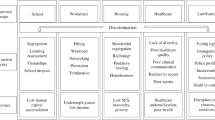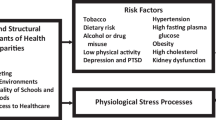Abstract
Almost all ethical guidelines and legislative policies concerning biomedical research involving human subjects contain provisions about relevance of research for the participating populations, informed consent, adequate care for research induced injuries and several other safeguards but the poor continue to suffer. Globalization has further aggravated poor people’s vulnerability by exposing them to international markets. Since the developing countries are abode of higher population of the poor they have become the unholy mines of this human ore for researchers. In this paper I examine various dimensions of poverty and analyze the international ethical responses in the area of biomedical research involving human subjects in order to determine their adequacy to protect the poor against exploitation and misuse and conclude that in view of the poor’s inherent and extreme vulnerability and the failure of ethical pronouncements to protect them from misuse and exploitation, they should be excluded from being enrolled as research subjects
Similar content being viewed by others
References
International Ethical Guidelines for Biomedical Research Involving Human Subjects, prepared by the Council for International Organizations of Medical Sciences in collaboration with World Health Organization, Geneva 2002, Commentary on Guideline 12.
Ethical Principles and Guidelines for the Protection of Human Subjects of Research, The National Commission for the Protection of Human Subjects of Biomedical and Behavioral Research, April 18, 1979, the Belmont Report.
Ethical Considerations in HIV Preventive Vaccine Research, UNAIDS Guidance Document, May, 2000, p. 7.
Hari, P. and Singh, Gina (2002) The booming business of Drug Testing, Businessworld 22/20 (October 2002): 7–13.
“A User’s Guide to Poverty and Social Impact Analysis”, World Bank Poverty Reduction Group (PRMPR) and Social Development Department (SDV), Work in progress, Draft for Comment, April 19 2002, p. 9.
World Development Report 2000/2001, Attacking Poverty, published by the World Bank, p. 3
Ibid, p. 1.
Ibid, p. 102.
Ibid, p. 103.
Ibid, p. 138.
Ibid, p. 15.
Ibid, p. 3.
Guideline 19, International Ethical Guidelines for Biomedical Research Involving Human Subjects, prepared by the Council for International Organizations of Medical Sciences in collaboration with World Health Organization, Geneva, 2002.
Ethical Principles for Medical Research Involving Human Subjects, World Medical Association Declaration of Helsinki, October 2000, S. No. 17, Basic Principles for All Medical Research.
Amartya Sen (1999) Development as Freedom, Knopf, New York. Amaratya Sen’ defines a person’s capabilities as “the substantive freedoms he or she enjoys to lead the kind of life he or she values.”
Convention for the Protection of Human Rights and Dignity of the Human Being with regard to the Application of Biology and Medicine: Convention on Human Rights and Biomedicine, Oviedo, 4 April 1997, (Article 2).
Ibid (Article 6)
Report on Confidentiality and Genetic Data, by the Working Group of the IBC, UNESCO, July 2000.
Guidelines for Good Clinical Practice, ICH Harmonised Guidelines, 17 January 1997, 1.61.
Ethical Principles for Medical Research Involving Human Subjects, adopted by the 52nd General Assembly of World Medical Association, Edinburgh, Scotland, October, 2000, Para. 5.
Universal Declaration of Human Rights, adopted by the General Assembly Of United Nations on 10 December 1948, Article 12.
Universal Declaration on the Human Genome and Human Rights, UNESCO, 11 November, 1997, Article 10.
Ethical Principles and Guidelines for the Protection of Human Subjects of Research, The National Commission for the Protection of Human Subjects of Biomedical and Behavioral Research, April 18, 1979, the Belmont Report.
Ibid.
Marshall, Patricia A. (2001) “The Relevance of Culture for Informed Consent in U.S.-Funded International Health Research,” Ethical and Policy Issues in International Research: Clinical trials in Developing Countries. Report and Recommendations of the National Bioethics Commission, Bethesda, Maryland, April 2001, Vol. II, p. C-6.
Kass, Nancy and Hyder, Adnan A. (2001) “Attitudes and Experiences of U.S. and Developing Countries Investigators Regarding U.S. Human Subjects Regulations. Ethical and Policy Issues in International Research: Clinical trials in Developing Countries. Report and Recommendations of the National Bioethics Commission, Bethesda, Maryland, April 2001, Vol. II, p. B-9 and B-27.
Ethical and Policy Issues in International Research: Clinical trials in Developing Countries. Report and Recommendations of the National Bioethics Commission, Bethesda, Maryland, April 2001, Vol. I, p. ii and iii.
International Ethical Guidelines for Biomedical Research Involving Human Subjects, prepared by the Council for International Organizations of Medical Sciences (CIOMS) in collaboration with the World Health Organization (WHO), Geneva 1993.
Nuremberg Code, adopted by the U.S. Tribunal on 19 July, 1947, Principle No.1.
Hoedemaekers, Rogeer and Hank ten have (1998) Commercialisation of genetic diagnostic services, Medicine, Healthcare and Philosophy 1: 217–224.
Dickens, Bernard M. (2001) “The Challenge of Equivalent Protection,” Commissioned Paper. Ethical and Policy Issues in International Research: Clinical trials in Developing Countries. Report and Recommendations of the National Bioethics Commission, Bethesda, Maryland, April 2001, Vol. II, p. A-7.
General Statement, in the Ethical Guidelines for Biomedical Research on Human Subjects”, ICMR, New Delhi, 2000.
Principle 18 of Fundamental Principles of Research on the Human Genome, Bioethics Committee, Council for science and Technology, Japan, 14 June 2000.
Para. 19 Ethical Principles for Medical Research Involving Human Subjects, adopted by the 52nd General Assembly of World Medical Association, Edinburgh, Scotland, October, 2000.
Ethical Considerations in HIV Preventive Vaccine Research, UNAIDS Guidance Document, May, 2000, commentary on Guidance point 7.
The Goals of Medicine Setting New Priorities, Special Supplement, Hastings Center Report, November–December 1996.
Kahn, Jeffrey (Winter 1998) Research Ethics: Then, Now, and Again, Bioethics Examiner, Winter, Vol 1, Issue 6.
Dr. Ames Dhai, (Summer 2002) Clinical Research In Africa: Ethics, Culture and the Law. The EFGCP News, The Newsletter of European Forum for Good Clinical Practice.
Tri-Council Policy Statement, “Ethical Conduct for Research Involving Humans”, Canada, August 1998.
The Australian National Statement on Ethical Conduct in Research Involving Humans, June 1999.
Guidelines on Ethical Matters in Aboriginals and Torres Strait Islander Health Research, National Health and Medical Research Council, Australia, June, 1991.
The ethics of clinical research in developing countries, a discussion paper. Nuffield Council of Bioethics, October 1999.
The ethics of research related to healthcare in developing countries, Nuffield Council of Bioethics. April 2002.
Ethical Considerations in HIV Preventive Vaccine Research, UNAIDS Guidance Document, May, 2000, p.9.
Bickerstaffe, Robert and Brasseur, Daniel (Autumn 2002) The EFGCP News, The Newsletter of the European Forum for Good Clinical Practice.
Surveying and Evaluating Ethical Review Practices, a complementary guideline to the Operational Guidelines for Ethics Committees That Review Biomedical Research, WHO, Geneva February 2002
Charter of the United Nations; June 26, 1945, Preamble.
Bodenheimer T. (January 2002) Uneasy alliance: Clinical investigators and the Pharmaceutical industry. N. Engl. J. Med 342: 1539–1544, quoted in CAHTA’s Newsletter, Issue 25, January 2002.
Author information
Authors and Affiliations
Corresponding author
Rights and permissions
About this article
Cite this article
Kishore, R.R. Biomedical research and mining of the poor: The need for their exclusion. SCI ENG ETHICS 12, 175–183 (2006). https://doi.org/10.1007/s11948-006-0017-8
Issue Date:
DOI: https://doi.org/10.1007/s11948-006-0017-8




